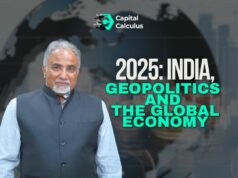It took Pakistan’s Deputy Prime Minister and Foreign Minister Ishaq Dar 13 years to visit Bangladesh, and within 13 minutes the ghosts of 1971 had barged into the room.
The Pakistani diplomat, on a “historic” visit to Dhaka, cheerfully announced that all “unresolved issues” between the two countries had been resolved twice over.
Bangladesh’s Foreign Affairs Adviser Touhid Hossain, poker-faced, shot back: “I do not agree at all.”
The trip, laden with symbolism, comes against the backdrop of political change in Bangladesh. Since Sheikh Hasina’s ouster last year, interim leader Muhammad Yunus has pursued a “friendship to all” foreign policy, loosening Dhaka’s heavy tilt toward India and creating diplomatic space for Pakistan.
Pakistan and Bangladesh signed six agreements during Dar’s visit, ranging from trade facilitation and cultural exchanges to academic partnerships, foreign service academy cooperation, and the abolition of visas for officials. Pakistani officials say the priority is to grow bilateral trade from the current $865 million to as much as $3 billion annually—a target that would represent more than a threefold jump.
Islamabad is eager to emphasise the potential upside. Pakistani textiles, pharmaceuticals, and cement already find buyers in Bangladesh, while Dhaka’s ready-made garments and jute products are competitive in Pakistan. Banking channels are also being revived, with discussions on direct shipping lines and smoother customs clearances.
The thaw is not confined to economics. Pakistan has quietly reopened military and intelligence channels with Bangladesh. For Dhaka, those links complement its “Forces Goal 2030” military modernisation plan, which aims to significantly upgrade its army, navy and air force. Military-to-military contacts have included meetings on training and defence cooperation, signalling that both sides are willing to explore security convergence after decades of distance.
Yet, behind the handshakes and communiqués, history looms large.
Dhaka has repeatedly raised its three core demands from 1971: a formal apology from Islamabad for the mass killings and atrocities during the Liberation War; the settlement of $4.52 billion in frozen assets dating back to the breakup of Pakistan; and accountability for war crimes.
Successive governments in Islamabad have skirted these demands, offering carefully worded “expressions of regret” but never the explicit apology Bangladesh insists upon. The financial dispute, too, remains unresolved, with Bangladesh insisting that Pakistan release the frozen accounts and pay outstanding claims.
For Prime Minister Yunus’s interim administration, ignoring 1971 is not an option. Any suggestion of backtracking risks domestic backlash, particularly with elections scheduled for February. The genocide issue retains emotional and political weight across Bangladeshi society, and no leader can afford to be seen as compromising on it.
Dar’s visit is equally significant for what it signals about Dhaka’s shifting regional calculus. Under Sheikh Hasina, Bangladesh maintained close strategic and economic ties with India, with trade valued at over $18 billion and deep cooperation on counter-terrorism and border security.
That relationship, however, has frayed. Hasina’s exile in India after her ouster has fuelled perceptions in Dhaka that New Delhi was too closely aligned with her. Popular resentment has been amplified by specific incidents, such as India’s unannounced release of water from the Dumbur dam during Bangladesh’s 2024 floods, which worsened the damage. The episode fed into the growing “India Out” movement, giving Yunus further reason to diversify Bangladesh’s external partnerships.
For Pakistan, this estrangement represents an opening. Beyond boosting trade, Islamabad sees an opportunity to carve out a role in Bangladesh’s security calculus and to present itself as a counterbalance to India. For Dhaka, engaging with Pakistan offers leverage — a reminder to New Delhi that Bangladesh is not beholden to a single partner.
In public, Dar has pitched his trip as a “reset”—a chance to move beyond the bitterness of the past and “write a new chapter” in Pakistan-Bangladesh relations. But even as new agreements are inked, the old grievances refuse to fade.
The asymmetry is stark. Pakistan talks about raising trade to $3 billion. Bangladesh talks about $4.52 billion in frozen assets. Pakistan prefers to highlight cultural exchanges. Bangladesh insists an apology is still due. For now, both sides seem content to let these contradictions coexist, if only to keep the diplomatic momentum alive.
The symbolism of Dar’s visit is undeniable. It marks Pakistan’s re-entry into a relationship frozen for over a decade, and it reflects Bangladesh’s willingness under Yunus to recalibrate its foreign ties. But symbolism does not erase substance.
Until Islamabad confronts the unfinished business of 1971, every meeting in Dhaka will remain crowded — with ministers at the table, and ghosts in the room.
In a career spanning three decades and counting, Ramananda (Ram to his friends) has been the foreign editor of The Telegraph, Outlook Magazine and the New Indian Express. He helped set up rediff.com’s editorial operations in San Jose and New York, helmed sify.com, and was the founder editor of India.com.
His work has featured in national and international publications like the Al Jazeera Centre for Studies, Global Times and Ashahi Shimbun. But his one constant over all these years, he says, has been the attempt to understand rising India’s place in the world.
He can rustle up a mean salad, his oil-less pepper chicken is to die for, and all it takes is some beer and rhythm and blues to rock his soul.
Talk to him about foreign and strategic affairs, media, South Asia, China, and of course India.





